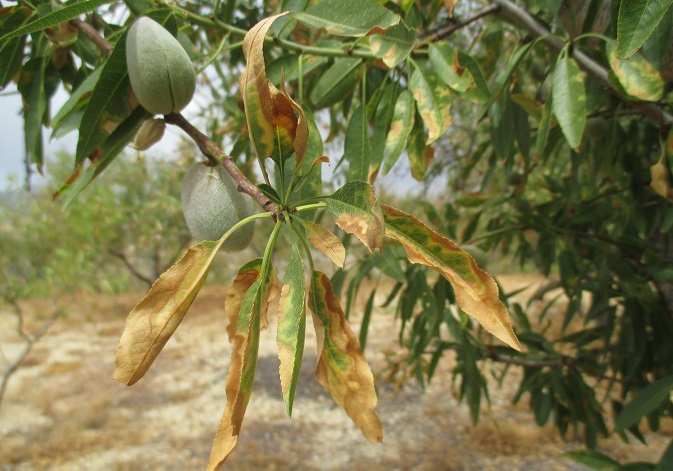Specialists in Xylella fastidiosa share in Valencia the latest advances in detecting the plague
- Scientific Culture and Innovation Unit
- September 16th, 2019

The Ibero-American Network for the Control of Xylella Fastidiosa (CYTED-IBER-XYFAS) organised a conference in which the latest advances in the detection of Xylella fastidiosa bacteria were presented at the Casa de la Ciencia in Valencia. The event was organised by the Institute of Integrated Systems Biology, joint centre of the University of Valencia and the CSIC, as well as the Valencian Institute of Agricultural Research.
Specialists in the detection of this plague from Brazil, Argentina, Costa Rica, Italy, the Balearic Islands and Valencia participated in the session. Thus, Edson Bertolini, of the Federal University of Rio Grande do Sul, in Brazil, analysed the presence of Xylella in citrus fruits and other plants.
Carlos Alonso Chacón, from the Centre for Tropical Disease Investigation at the University of Costa Rica, treated the disease caused by this bacterium in its surroundings; Maria Saponari (Italian Institute for Sustainable Plant Protection), the European protocol for diagnosis; and Diego Olmo (Official Laboratory of Plant Health of the Balearic Islands) explained the recognition of symptoms and action protocols against Xylella. Sergio Cubero, of the Valencian Institute of Agricultural Research, talked about the detection of this bacterium by means of remote sensors.
The Tuesday conference is the first activity of the IBER XYFAS network carried out in the framework of the Ibero-American Program for Science and Technology for Development (CYTED), created by the governments of Ibero-American countries to promote cooperation in science, technology and innovation for development.
The IBER-XYFAS Network is coordinated by Juli Peretó, Professor at the Department of Biochemistry and Molecular Biology of the University of Valencia and Deputy Director of the Institute of Integrated Systems Biology (I2SysBio, UV-CSIC). It is made up of a consortium of 32 academic research groups, companies and institutions with agronomic competences (such as the Valencian Institute of Agricultural Research or the corresponding plant health services of the Valencian Government, the Balearic Government or the General Council of Aragón), belonging to 10 countries (Argentina, Brazil, Costa Rica, Spain, the United States of America, Guatemala, Italy, Mexico, Portugal and Chile).
The IBER-XYFAS consortium also proposes sensitising citizenship in general and the agricultural sector in particular on the incurable diseases caused by this bacterium that attack numerous crops of great economic importance, including almond trees, olive trees, vineyards, citrus fruit and a wide variety of fruit trees. According to Juli Peretó, “the arrival of this bacterium in Europe is recent, and it is interesting to share knowledge and experiences with countries that coexist with this pathogen, as in the case of Brazil, to develop a surveillance system that facilitates the governments’ decision making”.
You can download the conference program clicking here.
File in: Recerca, innovació i transferència , Institut de Biologia Integrativa de Sistemes (I2SYSBIO) , Investigació a la UV , Finançament recerca , Facultat de Ciències Biològiques , Internacionalització recerca , Col·laboració amb empresa , Difusió i comunicació científica , Grups de recerca
















